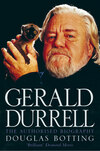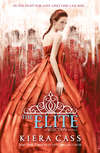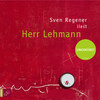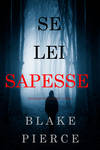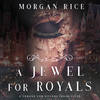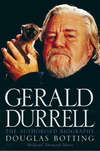Kitabı oku: «Gerald Durrell», sayfa 13
One way or another, Gerald got to Mamfe by half-past ten, and by two he was eating lunch with John Yealland at Bakebe. The reunion was heartfelt. Gerald had formed a high opinion of John’s qualities as an ornithologist and a man, relishing his slow drawl and dry humour, his wisdom and kindness. It was a pleasure to be with a fellow-countryman again, to speak plain English, swap the news of the last few months, and inspect each other’s impressive collections of birds and animals.
After three days’ rest at Bakebe, Gerald began to feel much better, only suffering from the disappointment of not having got an angwantibo. This disappointment was to be short-lived. One day, not long after his return to Bakebe, Gerald set off for a reconnaissance of the nearby mountain N’da Ali, which had almost sheer sides thickly covered with forest. Gerald’s aim was to find a camp site and to spend ten days or so trying to catch some of the large numbers of chimpanzees reputed to live there. He wrote home:
I set off early one morning on a borrowed bike, a small boy on the crossbar with a bag of beer and other nourishment, to meet the hunter who was going to lead me up. We had gone about four miles, and I was just wondering if my legs were going to hold out, when in the distance I saw a man marching along with a bag made out of palm leaves in his hand. Thinking it was yet another Pouched Rat or Brush-tailed Porcupine, I dismounted and waited for him. When he got near I saw to my surprise that he was one of my ex-hunters from Eshobi. When he got to within hailing distance I asked him what he had got, and he replied that it was small beef. I regret to say that on peering into the basket the only sound I could produce was a sort of strangled ‘Arrrrr …’ Then I loaded the hunter with my gear, threw the boy off the crossbar, and hanging the Angwantibo round my neck fled frantically back home again.
Gerald had obtained his first angwantibo in the nick of time, for shortly afterwards there came word from England – a tip-off from his Whipsnade friend Ken Smith – that the legendary collector Cecil Webb of the London Zoo had set sail for the Cameroons with the express intention of catching angwantibo. A veteran of expeditions all over the world, Webb regarded Durrell and Yealland as novices and upstarts. For their part, they saw him as an irritating rival who was over the hill.
Eventually, Webb caught up with them. ‘He is a huge, lanky man (six foot six, I believe),’ Gerald reported to Mother, ‘with a protruding jaw and faded blue eyes. We found him clad in faded blue jeans and an enormous sort of straw sun-bonnet which made me want to giggle. He asked, with a careless air that almost strangled him, if we had still got the Angwantibo, to which we replied that it was thriving. I am going up to Bemenda in a few days time and will pass through Mamfe, where he is now. I shall then take great pleasure in telling him that we have now got three (3) Angwantibo!!!!!!!!’
Webb did not go away empty-handed, however, for Gerald was duty bound to hand over to him for delivery to London Zoo the most remarkable animal in his collection – Cholmondeley (pronounced Chumley) the chimpanzee. Gerald had acquired Cholmondeley from a District Officer who had asked him if he could find a home for a chimp at London Zoo. Gerald had agreed, imagining that the creature would be about a year old and around eighteen inches high. He was amazed when a lorry arrived with a large crate in the back containing a full-grown chimpanzee of eight or nine years of age, with huge arms, a bald head, a massive, hairy chest that measured at least twice the size of Gerald’s, and bad tooth growth that made him look like an unsuccessful prize-fighter.
I opened the crate with some trepidation. Cholmondeley gave a little hoot of pleasure, gathered up the long chain which was attached to a collar round his neck, hung the loops daintily over his arm, and stepped down. Here he paused briefly to shake my hand in the most regal and dignified manner before walking into the house as if he owned it. He gazed around the living room of our humble grass hut with the air of a middle-European monarch inspecting a hotel bedroom suspected of containing bed bugs. Then, apparently satisfied, he ambled over to the table, drew out a chair and sat down, crossing his legs and staring at me expectantly.
We stared at each other for a bit, and then I got out my cigarettes. Immediately Cholmondeley became animated. It was quite obvious that after his long journey he wanted a cigarette. I handed him the packet, and he removed a cigarette, carefully put it in his mouth, and then replaced the packet on the table. I handed him a box of matches, thinking this might possibly fool him, but he slid the box open, took out a match, lit the cigarette, and threw the matches back on the table. He crossed his legs again and lay back in his chair inhaling thankfully and blowing great clouds of smoke out of his nose.
Cholmondeley had other predilections. Hot, sweet tea was one. He would drink it out of a battered mug the size of a tankard, balancing it on his nose to drain the last dregs of syrupy sugar at the bottom. Then he would either hold out the mug for more or hurl it as far away as he could. He had also developed a fondness for beer, though Gerald only proffered it to him once, when he drank a whole bottle very quickly, with much lip-smacking and delight, till he was covered in froth and began to turn somersaults. After that he was given nothing stronger than lemonade or tea. Gerald parted with this extraordinary character with much regret, though he was destined to meet up with him again soon enough.
At last, in July, the time came to wind down operations and pack up the expedition. The rains were beginning, and Gerald had run out of money. He had spent heavily on stores, staff and accommodation, but especially on the birds, animals and reptiles which made up his huge collection. The situation was dire enough for him to swallow his pride and telegraph home for a loan, receiving by return the sum of £250 (more than £5000 in today’s money) from Leslie’s girlfriend Doris, the off-licence manageress.
The remaining camp stores were sold off, as John Yealland recorded in his diary:
Gerald started to sell up the home this evening and did a brisk trade with his topee and umbrella and my oilskin, along with two sacks of maize, half a sack of coconuts, crockery, pots and pans and some spare cartridges. Such was Gerald’s salesmanship that he even sold an alarm clock which never lost less than one and a half hours in twenty-four for 15 shillings. He also sold a watch which he dropped on a concrete floor at Victoria and which still ticks though it doesn’t move its hands. So now we dine off cracked plates, but at least we have some money for cables to Belle Vue and Chester Zoos.
Gerald and John had originally planned to sail on 24 June, but their collection had grown so huge that the crates and boxes – five hundred cubic feet in volume – would not fit into the hold of the ship they had booked, and it sailed without them. Eventually they were able to secure berths and cargo space on a banana boat, the SS Tetela, sailing from the port of Tiko a whole month later, on 25 July, and began to prepare for their departure.
‘You cannot just climb aboard a ship with your animals,’ Gerald pointed out, ‘and expect the cook to feed them.’ A vast hoard of foodstuffs had to be got together, gathered from all over the country, and soon the expedition hut at Kumba resembled a market, with bananas, pawpaws, pineapples, oranges, eggs, sacks of corn, potatoes and beans, and the carcass of a whole bullock strewn across the floor.
It was at this point that Gerald went down with malaria, and lay feverish and ill with a temperature of 103 for a week. The plan was to drive down to Tiko during the night of 24 July, arriving at dawn on the day the ship was due to sail. But when the doctor called on the day before their departure, he was aghast at the idea of Gerald going anywhere. ‘You should be kept in bed for at least a fortnight,’ he thundered. ‘You can’t travel on that ship.’ Otherwise, he bluntly informed the ailing Englishman, he would die.
But Gerald went, alternately sweating and shivering in the cab of the lorry as it ploughed down the mud road through the first rains of the season. A torrential downpour half-drowned the animals as they were being loaded on board at the docks, and though he felt like death Gerald insisted on drying the sodden creatures and giving them their night feed. Then the steward poured him a whisky which, he recalled, ‘could have knocked out a horse’, and he lay down in his cabin convinced he was going to die.
But he didn’t. He was lucky with the weather on the voyage home, and soon began to revive with the fresh sea air. The crew found a playpen for Sue the chimpanzee, and titbits and blankets for any monkey with a sniff or a cough. The only casualty was a mongoose that staged a breakout and jumped overboard.
At 4 p.m. on Tuesday, 10 August 1948, the Tetela tied up at Garston Docks, Liverpool, and Gerald Durrell and John Yealland stepped back on to dry land at the end of their African adventure. They had been away more than seven months, and had brought back nearly two hundred creatures all told – among them ninety-five mammals (including the three angwantibo, forty monkeys, a baby chimp and a giant white mongoose), twelve reptiles and ninety-three rare birds. This cargo was sufficiently exotic to attract the attention of the national press. ‘Awantibos, ahoy!’ cried the headlines. ‘The Awantibo is here today … only once seen alive in a European zoo!’
‘Eventually,’ Gerald was to recall, ‘the last cage was towed away, and the vans bumped their way across the docks through the fine, drifting rain, carrying the animals away to a new life, and carrying us towards the preparations for a new trip.’
The expedition had been an enormous challenge, and had turned out a considerable triumph, putting Gerald Durrell and John Yealland in the front rank of British zoo collectors and field workers, and marking the definitive starting point of Gerald’s spectacular career.
* In pidgin all animals are called ‘beef’. There are four kinds: ‘small’, ‘big’, ‘bad’ and ‘bery bad’ beef.
* Spelt ‘Andraia’ in Gerald’s later book. The correct spelling is ‘Andreas’, and the man is still alive.
NINE In the Land of the Fon Second Cameroons Expedition 1948–1949
With the African animals finally settled in their English zoos, and a bit of profit jingling in his pocket, Gerald was free to go home to Bournemouth. He was greeted as if he had come home from the moon, and his residual malaria, diagnosed by Alan Ogden, the family doctor, as the particularly severe strain Plasmodium falciparum, was viewed like a badge of courage brought back from some distant battlefield. Leslie was living with Doris nearby, and Margaret and her children were still in residence at Mother’s house. At Christmas Larry and Eve returned from Argentina and temporarily rejoined the fold.
Gerald was already a very good story-teller, and he held the house in St Alban’s Avenue in thrall with tales of his extraordinary adventures. In the comforting ambience of kith and kin he began to ease up after the strenuous travails of the last year. Slowly – perhaps not so slowly – his mind turned to the long-lost local girlfriends of that far-off pre-Cameroons era of the year before, whose company he had been deprived of for so long during the chaste jungle months. He even thought of taking a holiday – a proposal that provoked an odd reaction. ‘Nothing annoys a collector more,’ he was to recall, ‘than to return after six months of bites, scratches, trouble and toil and to announce to one’s friends that one is thinking of taking a short holiday, only to be told – “But you’ve just had one!”’
It was during Gerald’s brief hometown visit that he encountered a young woman whose equivocal charms were to alternately intrigue and appall him for a long time to come. Her real name was Diane, but he was later to bequeath her the unforgettable nom d’amour of Ursula Pendragon White. His subsequent account of this flawed paragon is intricate and involved, but there is no doubting his fascination with her divine looks and her less than divine language, and the spell cast over him by both. ‘I found,’ he was to recall, ‘that she was the only one who could arouse feelings in me that ranged from alarm and despondency to breathless admiration and sheer horror.’
Ursula was an ex-public school young woman from Canford Cliffs, at the posh end of Bournemouth (though later, to disguise her identity, Gerald was to say she was from Lymington in the New Forest). Gerald first set eyes on her on the top of a double-decker bus in Bournemouth town centre, his attention initially drawn by her ‘dulcet Roedean accents, as penetrating and all-pervading as the song of a roller canary’.
Gerald’s sister Margaret remembered Ursula as ‘a young dolly bird with long blonde hair who sat around in a droopish fashion which was very irritating to the rest of us’. According to Gerald’s later description, though (again, perhaps to disguise her identity), Ursula had dark, curly hair. Her eyes were huge, fringed with long dark lashes and set under very dark eyebrows. ‘Her mouth,’ he recalled, ‘was of the texture and quality that should never, under any circumstances, be used for eating kippers or frogs’ legs or black pudding.’
When Ursula stood up to get off the bus, Gerald saw that she was tall, with long, beautifully shaped legs and ‘one of those willowy, coltish figures that turn young men’s thoughts to lechery’. He reckoned, sighing, that it was unlikely he would ever set eyes on her again. But within three days she was back in his life, and remained so off and on for the next five years.
Encountering her again at a friend’s birthday party, where she greeted him effusively as ‘the bug boy’, Gerald, by his own account, ‘gazed at her and was lost’. It was not just her looks that infatuated him, it was also the sounds she made – ‘her grim, determined, unremitting battle with the English language’. For this svelte and spirited beauty suffered from a sort of oral dyslexia, and was for ever forcing words and phrases to do her bidding, expressing meanings they were never meant to express. There was no guessing what fantastical imagery she would conjure up next. She would speak excitedly of ‘Mozart’s archipelagoes’, of having bulls ‘castigated’, and of ‘ablutions’ to prevent ‘illiterate babies’. In Ursula’s world there was never fire without smoke, and rolling moss gathered no stones. In the prim confines of Bournemouth society ‘she dropped bricks at the rate of an unskilled navvy helping at a building site’.
There began a lengthy (and possibly unconsummated – the evidence is unclear) game of romantic cat and mouse. To give Ursula the impression that he was her equal in wealth, class and breeding, Gerald persuaded Margaret’s ex-husband Jack Breeze to drive him to his rendezvous with her in the vintage Rolls-Royce Jack owned at the time, with Jack smartly turned out in his BOAC officer’s uniform, for all the world like some pasha’s personal chauffeur. Ferried around in style, Gerald took Ursula to dinner at the Grill Room (‘She has the appetite of a rapacious python,’ he was warned, ‘and no sense of money’); to a symphony concert at the Pavilion (where her Pekinese puppy jumped out of its basket and created havoc in the auditorium); and into the country for gin and shove ha’penny at the ancient Square and Compass pub, where the aged yokels were mesmerised by her unique brand of English (‘A fine young woman, sir,’ commented one pickled veteran, ‘even though she’s a foreigner’). Gerry never got on terribly well with his girlfriends’ fathers in those days, and Ursula’s, stuffy and well-heeled, was conventional enough to brandish a horse-whip one night when he brought her home late, threatening to thrash him within an inch of his life if it ever happened again.
But while Ursula was Gerald’s distraction, it was the animal wilds of Africa that were his obsession, and she was convinced that sooner rather than later her beloved would end up tied in knots by a gorilla, or devoured by a lion before breakfast. One day she telephoned him. Her voice was so penetrating that he had to hold the receiver away from his ear.
‘Darling,’ she cried, ‘I’m engaged!’
‘I confess that my heart felt a sudden pang,’ Gerald was to write of this poignant moment, ‘and a loneliness spread over me. It was not that I was in love with Ursula; it was not that I wanted to marry her – God forbid! – but suddenly I realised that I was being deprived of somebody who could always lighten my gloom.’
Ursula duly married her intended. A long time later, she and Gerald met one last time, at a smart but stuffy old Edwardian café called the Cadena, among the elderly seaside gentry. As she came through the door it was obvious she was far gone with her second child.
‘Darling!’ she screamed. ‘Darling! Darling!’
‘She flung her arms round me,’ Gerald remembered, ‘and gave me a prolonged kiss of the variety that is generally cut out of French films by the English censor. She made humming noises as she kissed, like a hive of sex-mad bees. She thrust her body against mine to extract the full flavour of the embrace and to show that she cared, really and truly. Several elderly ladies, and what appeared to be a brigadier who had been preserved (like a plum in port) stared at us with fascinated repulsion.’
‘I thought you were married,’ said Gerald, tearing himself from her with an effort.
‘I am, darling,’ replied Ursula. ‘Don’t you think my kissing’s improved?’
They sat down at their table.
‘I don’t suppose you’d like me now,’ Ursula said wistfully. ‘I’ve reformed. I’ve become very dull.’
‘Do you think so?’ asked a still-infatuated Gerald.
‘Oh, yes,’ she said, looking at him solemnly with her great blue eyes. ‘I’m afraid I’m now what they call one of the petty beaujolais.’
Gerald did not intend to linger long in England. Partly the spell of Africa had got into his blood. Partly there was nothing for him to do in Britain. No longer a novice, but a fully-fledged old hand, he planned a second Cameroons expedition, aiming for bigger and infinitely more profitable ‘stuff’ this time round, including gorilla, hippo and elephant, all valued by British zoos at up to £1000 per animal (around £20,000 in today’s money). His ambition to collect the really big game was not based entirely on greed, but also on the imperatives of personal survival. His first expedition had cost him roughly half his inheritance. The second was likely to cost the same, possibly more. He had to succeed – or go under.
It was an enormous fillip that Herbert Whitley, the wealthy owner of a large private collection of rare animals at Paignton, which later became the basis of Paignton Zoo, had agreed to buy half his collection on his return, plus any animals that London Zoo did not want. Gerald found Whitley highly eccentric – he was so shy that if anyone came to see him he would run through the house locking the doors, then flee in a special lift – but he was to have more than a passing influence on the young Gerald, for he was at the forefront of captive breeding. ‘He tried to breed an alligator and an all-yellow salamander for a while,’ Gerald was to recall. ‘He had a particular obsession for breeding blue things. Part of this was to confound experts. He bred blue pigeons, blue Great Danes, blue ducks.’
John Yealland was not available to accompany Gerald back to the Cameroons, so in his place Gerald invited the experienced Ken Smith, a near neighbour in Bournemouth whom he had first met at Whipsnade. Smith was senior to Gerald both in terms of age (he was thirty-seven) and status (he was to be superintendent of Paignton Zoo) – but in Gerald’s eyes his role made him the junior partner. Though physically Smith was hardly cast in the Tarzan mould, and was rather less gung-ho than his younger friend in face-to-face encounters with the larger and more fearsome beasts of the jungle, he knew his business, and was to prove a loyal and tireless companion in the long slog that lay ahead.
With Smith’s help Gerald began to assemble a more sophisticated and better targeted range of expedition stores, including bigger and better guns, folding cages, a gallon of cod liver oil and twelve dozen babies’ teats for the younger animals, several roll-neck pullovers ‘to keep a gorilla warm on the ship back’ and a splendid wedding marquee to house the animals at the base camp in the bush.
The second expedition was not intended simply to be a rerun of the first, for though Gerald would again work the rainforest around Mamfe, he also proposed to strike north into new territory – the high grassland region of central Cameroons, which offered a completely different range of fauna.
Early in January 1949, a few days before his twenty-fifth birthday, Gerald boarded the cargo boat MV Reventazon at Liverpool docks, together with his companion and all the paraphernalia of a major African collecting expedition. The press, who had witnessed his return from the first trip six months before, were back to witness his departure on the second, for his unusual way of earning a living had begun to attract some popular interest. ‘He’s off to Darkest Africa’, went one headline. ‘Mr Durrell, who is a bachelor, will journey inland for about 500 miles by lorry, then begin an eight-day safari. He is after gorilla and may also have a shot at capturing a buffalo or even a hippopotamus. “We shall try to get the gorillas in a sort of giant mousetrap,” he said. “They can be very nasty.”’
The ship sailed on time, and the voyage out was uneventful. Only Smith provided Gerald with much diversion. ‘He wakes in the morning,’ Gerald wrote to his mother, ‘and tells me that he has been dreaming about catching Gorilla with the help of the stewardess and the Liverpool representative of Grindlays Bank. The other night he was reading a bit about Buffalo. That of course set him off and about twelve o’clock he fought with his bedclothes for about an hour and a half, sweat pouring down his face, uttering wild cries.’
On 10 February the ship nudged in towards the coast of Cameroons and Gerald noted in his diary: ‘We were on deck about six, a bit unsteady after the farewell party last night. The islands in the bay loomed up through the mist, overloaded with vegetation … It’s wonderful to be back again.’ Then, in case he forgot the reason he was there, he added: ‘I am going to make a packet on this trip. I feel it in my bones, and Smith feels it in his varicose veins.’
The magic of Africa overwhelmed him once more – every crack in the wall a menagerie, every tree jam-packed with a hierarchy of species, the road at sundown paved with nightjars, the woods loud with the cry of the touracou, the songs of the bulbul and currichane thrush on the mountain ‘sweet and liquid like the English blackbird and song thrush’. Gerald wrote home: ‘Victoria is as beautiful as ever. Now all the trees are in bloom, and every one of them is covered in huge waxy flowers of every colour: yellow, blue, mauve, and scarlet. Hibiscus hedges are simply aflame with flower, and huge masses of bougainvillaea and canna lilies are everywhere. Ken has been walking around in a daze, with his mouth so wide open that I am afraid his teeth will drop out.’
‘Everyone seems to remember me,’ he wrote in his diary on his second day, ‘and everyone is most charming and so very helpful.’ The word went out on the bush telegraph that the animal collectors were back, and within a few days the pace of events accelerated dramatically. ‘Now for some extraordinary news,’ Gerald wrote excitedly to his mother on the fourteenth. ‘We have started our collection with a bang by obtaining a young male Chimpanzee!! A planter and his wife have him and are willing to give him to us. He is a dear little chap, and when I picked him up he pushed out his lips and kissed me.’
Gerald’s growing reputation for eccentricity was enhanced when he brought the chimpanzee, Charlie by name, to Victoria on the back of a bike, the chimp hanging round his neck ‘hooting with joy and occasionally sticking his fingers in my eyes, so that I narrowly missed running over several members of the Victoria populace’. Both Gerald and Ken Smith were regarded as slightly mad, and were known as the ‘animal maniacs’ to the white community and as the ‘beef masters’ to the black. But whereas Gerald was regarded as largely unconventional, Smith was entirely comical, not least to his younger companion. While going for a swim in an up-country river, for example, he earned a thunderous round of applause from a large crowd of watching villagers when he suddenly sneezed, projecting his dentures some distance into the water.
Gerald already knew that animal collecting was a business which required some odd, exotic qualities in its practitioners. He later wrote:
Most people’s idea of an animal collector is a brawny, Tarzan-like kind of bloke, but in fact most animal collectors look half dead from birth. To be successful at his job it’s best if a collector is born a bit mental and grows up with a highly developed sense of humour and no sense of smell (I mean, have you ever smelled a monkey cage first thing in the morning?). It’s also helpful if he has a private income, so it doesn’t matter so much if he doesn’t make a penny from the business. Of course, there are all sorts of ways of catching animals – traps, nets, smoking out caves and hollow trees, hunting with dogs, hunting at night (very good for reptiles) – but contrary to popular belief, collecting wild animals is not particularly dangerous – or at any rate only as dangerous as the collector is stupid.
Really it’s not catching the animals that is so difficult, it’s keeping them once you’ve caught them. Having a collection of animals is like having two or three hundred pernickety babies with stomachs as delicate as debutantes, all with different likes and dislikes. Naturally when life is spent in close proximity with these creatures you get involved in many embarrassing and irritating matters, particularly their lavatorial habits. For example, I had a hyrax that would only go to the toilet in the DO’s hat, and a pouched rat that would only do big jobs in its drinking bowl. Sometimes a collector has to share his bed with a baby animal for warmth, and this can lead to all sorts of strange experiences, especially if the creature in question is a porcupine.
The plan was to establish the marquee base camp at a suitable site overlooking the river near Mamfe, and for this to be used as the central depository for all the animals coming in from the surrounding area and from further afield. Ken Smith would be more or less permanently billeted at the Mamfe base as keeper-cum-vet, while Gerald roamed far and wide in the neighbouring forests and the mountain grasslands to the north, hunting for creatures on the wanted list which would then be despatched back to Mamfe.
On 18 February the little party headed off for the interior, overnighting at Kumba on their way to Mamfe. ‘We started fairly early this morning,’ Gerald noted in his diary, ‘and made Kumba in good time. The ride was wonderful and it was lovely to feel we were at last heading for bush.’ Two days later they reached Mamfe, and in due course, with the help of thirty panting labourers and to the amazement and delight of a surging crowd of villagers, the great canvas mass of the English wedding marquee was hauled and pulled into position till it stood, four-square and proud as a medieval tented pavilion, on the bank of the slow brown river at the edge of the primeval forest.
There was still another week of preparations – cages to be erected, ponds dug, food supplies laid on, chiefs propositioned with lists of wanted animals, a hundred and one things – before systematic collecting could start. By the beginning of March they were all set, and Gerald ventured forth into the surrounding wilds on his second great quest in search of rare ‘beef’. From this point forward he was to be subject to a life of such relentless physical endeavour and such sensory richness and intensity that his diary reads like the breathless log of some inter-galactic voyager, every day a new adventure, every minute a mind-blowing revelation. It is difficult to do justice here to the extraordinary document he typed with two fingers and a thumb every evening in the yellow circle of light from the hurricane lamp in his jungle camp, exhausted almost to the point of collapse; but various important features emerge from it.
The first is that the Gerald Durrell who is thinking aloud, so to speak, in the 1949 diary, seems quite a different young man from the one who had first arrived in the country the year before. Gone are all the imperial pretensions and colonial posturings. Now he responds to the phenomena of Africa and the Africans in his own way. Though still inclined to paternalism now and then, he finally seems to have perceived that the bush Africans with whom he was to spend most of the seven months to come were individuals every bit as eccentric, engaging, irritating, talented or flawed as the rest of the animal species known as man – himself and Ken Smith included. He also knew that without the help and support of the local Africans the entire enterprise would fail, for virtually everything depended on them, from collecting to cooking. And in the course of this second expedition he would grow so close to the people of the Cameroons that he would become almost a blood brother to one of them, with whom his name would be associated for the rest of his life.
